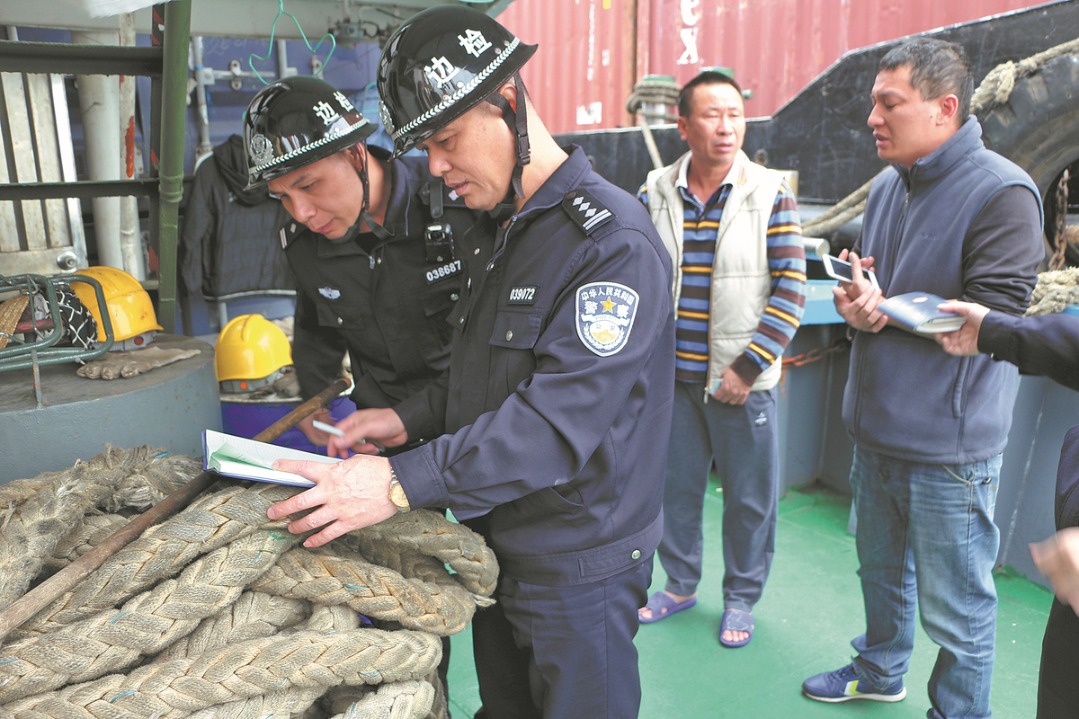The arbitration award is not a panacea for South China Sea disputes


It has been many years since the South China Sea arbitration case, which caused a great disturbance and serious damage to the peace and stability of the South China Sea and the healthy development of China-Philippines relations. However, some countries inside and outside the region still place the arbitral award under the "spotlight" from time to time, hyping it as "international law applicable to the South China Sea", using it to deny China's legitimate rights and claims in the South China Sea, to consolidate and expand illegal gains, or confront China by intervening in South China Sea affairs.
China has sufficient historical and legal basis for its territorial sovereignty over the four offshore archipelagoes in the South China Sea, which needs no further elaboration. China's recovery of the Nanhai ZhuDao after the end of World War II constituted an important part of the post-war international order. Since the 1970s, some countries have illegally occupied more than 40 islands and reefs. Considering the overall situation of regional peace and stability, although China has reason and ability to recover the occupied islands and reefs, it insists on resolving disputes through negotiation, diluting differences through cooperation and managing crises through rule creation. China has always played an irreplaceable role in safeguarding regional peace and leading the maritime governance of the South China Sea.
Twenty years ago, China and ASEAN countries signed the "Declaration on the Conduct of Parties in the South China Sea", which requires "refraining from the action of inhabiting on the presently uninhabited islands, reefs, shoals, cays and other features". To a certain extent, this is to maintain peace and stability in the South China Sea by "freezing the status quo". The terms "uninhabited" and "action of inhabiting" purposely evade the evaluation of the legal status of relevant islands and reefs and the legal effects of their occupation, and do not imply the "status quo" of some disputed countries stealing China's islands and reefs having international legality.
The South China Sea arbitration case unilaterally initiated by the Aquino government of the Philippines is a legal provocation against China by the party to the dispute with the instigation and support of Washington. The arbitral award is premised on the legalization of the Philippines' illegal occupation of Nansha islands and reefs, trying to consolidate the illegal gains of the Philippines and infringing on China's territorial sovereignty and maritime rights. In this case, the arbitral tribunal violated many basic principles that should be followed by international judicial and arbitration institutions, exercised jurisdiction beyond its competence, and made an award full of errors and omissions. Some countries in and outside the region have been hyping up the "binding force" and "validity" of the arbitral award in recent years, which makes it necessary to reflect on some questions: Whether forcibly bringing relevant disputes into the track of simple legal settlement regardless of actual conditions is applicable to the complex South China Sea disputes? Does the third-party compulsory settlement procedure without the consent of the state deviate from the original intention of the parties to the United Nations Convention on the Law of the Sea (hereinafter referred to as the "Convention") to design the dispute settlement mechanism? Does the abuse of international judicial and arbitration procedures by maliciously concealing claims constitute a great satire and destruction of international law?
The core of the South China Sea issue is the disputes over territorial sovereignty and maritime delimitation. The arbitral award not only fails to provide a fair and just solution to the dispute, but also makes the complex issues more difficult to resolve; not only does it fail to play a positive role in the interpretation of the rules of international law, but instead impacts the balance and impartiality of the Convention. The arbitration case has not enhanced the reputation and credibility of international judicial and arbitration institutions but has shaken the confidence of the contracting states in whether the dispute settlement mechanism of the Convention can be used correctly in practice.
All parties to the South China Sea disputes participated in the third UN Conference on the Law of the Sea. Although the depth and breadth of the participations were different, the relevant countries should be aware of which provisions of the Convention achieve a delicate balance of the interests of the contracting parties, and which provisions remain vague due to the "package agreement" of the Convention, and what other matters are left to general international law, including customary international law, for various reasons. It has been 40 years since the Convention was opened for signature. All countries should view the status and role of the Convention objectively, historically, and realistically, and interpret and apply the Convention in good faith.
At present, the factors of instability, uncertainty and insecurity affecting the international situation have become increasingly prominent, and the Cold War mentality of bloc confrontation has also affected the situation in the South China Sea. Relevant countries should have a deeper understanding of China's thinking, methods and paths in handling sensitive issues such as disputes over territorial sovereignty and maritime jurisdiction, and place them in China's national development strategy, overall diplomatic goals and guidelines. From the perspective of the basic theory and practice of the interpretation and application of international law, the historical evolution of the law of the sea and its complete system, rather than have one-sided observation on China’s South China Sea policy and actions, understanding all sides is key, rather than the fixation on the third-party compulsory dispute settlement mechanisms that are merely a component of the Convention.
Some of the parties to the South China Sea disputes are imposing their unilateral claims in the South China Sea on China through international justice and arbitration. This kind of strategic misjudgment will not succeed, but it can be used by the countries with ulterior motives outside the region to stir up the situation in the South China Sea and provoke relations between China and ASEAN countries. Washington now is trying to reshape China's surrounding strategic environment with "investment, alliance and competition", and the outdated thinking and practices of international politics such as group confrontation and zero-sum game still have an impact on China's surrounding maritime issues. The US always mentions "rules-based order" in the South China Sea. The "rules" in its narrative context are not based on the basic theory of the source of universal validity of international law, nor are they rooted in the equality of large and small countries and the democratization of international relations. This "rules-based order" goes together with the logic of power and alliances. The logic of power has transformed the rules that were supposed to be neutral, objective and universally applicable into an institutional hegemony, and the alliance has put on the cloak of "collective will" for the U.S. to suppress dissent with its own "rules".
The South China Sea issue is both political and legal in nature, and various factors are intertwined. Either a phased or final solution may consist of a series of political arrangements, or a combination of several political and legal arrangements. In the process of discussing solutions, the parties concerned should get out of their obsession with the "validity" of the arbitral award, work with China to safeguard the hard-won peace and stability in the South China Sea and seek a stable and long-term solution to the South China Sea issue.
The author is deputy director and associate research fellow of the Research Center for Ocean Law and Policy at the National Institute for South China Sea Studies.
The opinions expressed here are those of the writer and do not necessarily represent the views of China Daily and China Daily website.
If you have a specific expertise, or would like to share your thought about our stories, then send us your writings at opinion@chinadaily.com.cn, and comment@chinadaily.com.cn.


































